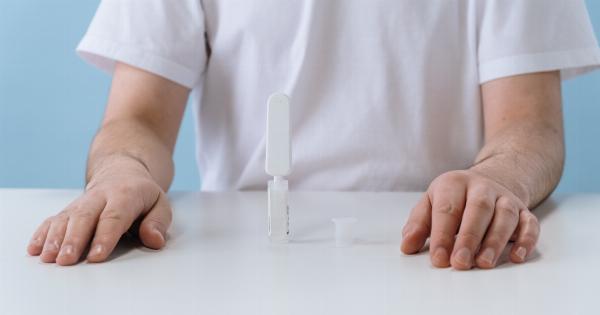Living a healthy life is essential to your overall well-being, and that includes proactive measures to protect yourself against various diseases. One such disease that requires attention is HIV/AIDS.
By taking control of your health and undergoing regular virus checks, you can not only safeguard your own well-being but also play a crucial role in preventing the spread of this infectious disease. In this article, we will explore the importance of getting a free HIV/AIDS virus check, the benefits of early detection, different testing methods available, and provide resources to support you in your journey towards a healthier life.
The Importance of HIV/AIDS Virus Checks
Human Immunodeficiency Virus (HIV) is a virus that attacks the immune system, leaving it vulnerable to infections and diseases.
Acquired Immunodeficiency Syndrome (AIDS) is the most advanced stage of HIV infection, where the immune system is severely damaged. With over 38 million people worldwide living with HIV, it is crucial to prioritize regular virus checks to ensure early detection and subsequent treatment.
Many individuals with HIV are unaware of their status, as symptoms may not appear immediately or may be mistaken for other common illnesses.
By getting tested, you take control of your health and enable healthcare professionals to provide appropriate care, support, and guidance tailored to your needs.
The Benefits of Early Detection
Early detection of HIV is key to managing the disease effectively and improving outcomes. Here are some of the compelling benefits of early diagnosis:.
1. Timely Treatment:
With early detection, healthcare providers can initiate antiretroviral therapy (ART) promptly. ART helps control the virus, allowing individuals with HIV to lead healthier and longer lives. It also reduces the risk of transmitting the virus to others.
2. Improved Quality of Life:
Starting treatment early can significantly improve the quality of life for individuals with HIV. By managing the virus effectively, the immune system remains stronger, reducing the likelihood of opportunistic infections and other complications.
3. Preventing Transmission:
Early diagnosis enables adopting preventive measures to reduce the risk of transmitting the virus to sexual partners or during pregnancy.
With the right knowledge, medication, and safer practices, it becomes possible to protect others from contracting HIV.
Methods for HIV/AIDS Virus Checks:
There are various methods available for HIV/AIDS virus checks, each with its own advantages and considerations. It is important to choose the method that suits your preferences and circumstances best. Here are some commonly used testing methods:.
1. Blood Tests:
One of the most traditional and reliable methods of testing for HIV is through blood tests. These tests detect specific antibodies or antigens related to the virus.
Blood tests can be performed in several settings, including healthcare clinics, hospitals, and specialized laboratories.
2. Rapid Tests:
Rapid tests provide quick results, usually within minutes. These tests use blood from a finger prick or an oral swab to detect the presence of HIV antibodies. Rapid tests are convenient and offer a confidential and discreet testing experience.
3. Self-Testing Kits:
Self-testing kits allow individuals to perform the test in the comfort of their own homes. These kits typically provide clear instructions and include necessary materials for testing.
It is important to follow the instructions carefully and seek professional assistance in interpreting the results.
4. Viral Load Tests:
Viral load tests measure the amount of HIV in the blood. These tests are generally used to monitor the effectiveness of antiretroviral therapy (ART) or to assess the progression of the disease.
Resources and Support:
Getting a free HIV/AIDS virus check is a critical step towards taking control of your health. If you are unsure where to get tested, many organizations and healthcare facilities offer free testing services.
Here are some resources and support options that can assist you:.
1. Local Health Clinics:
Contact your local health clinics or community centers to inquire about free HIV/AIDS testing services available in your area. These clinics often provide comprehensive care and support throughout the testing process.
2. National HIV Hotlines:
Many countries have national HIV hotlines that offer information, support, and guidance regarding testing, treatment, and prevention. These hotlines can connect you to local resources and organizations that provide free testing services.
3. Online Directories:
Online directories specifically designed for HIV testing services can help you find nearby testing centers that offer free virus checks. These directories often provide user reviews, ensuring you can choose a reputable and reliable facility.
Conclusion
Take control of your health by getting a free HIV/AIDS virus check. Early detection plays a crucial role in managing the disease effectively and reducing the risk of transmission.
Choose from various testing methods, such as blood tests, rapid tests, self-testing kits, or viral load tests, based on your preferences and circumstances. Remember, regular testing and preventive measures are key to protecting yourself and others. Don’t hesitate – get tested today and empower yourself with knowledge to prioritize your well-being.





























